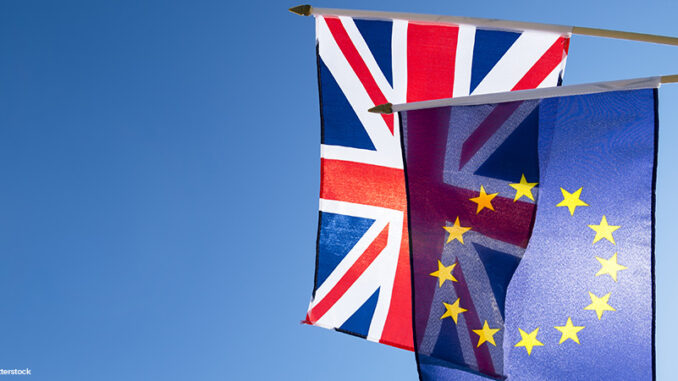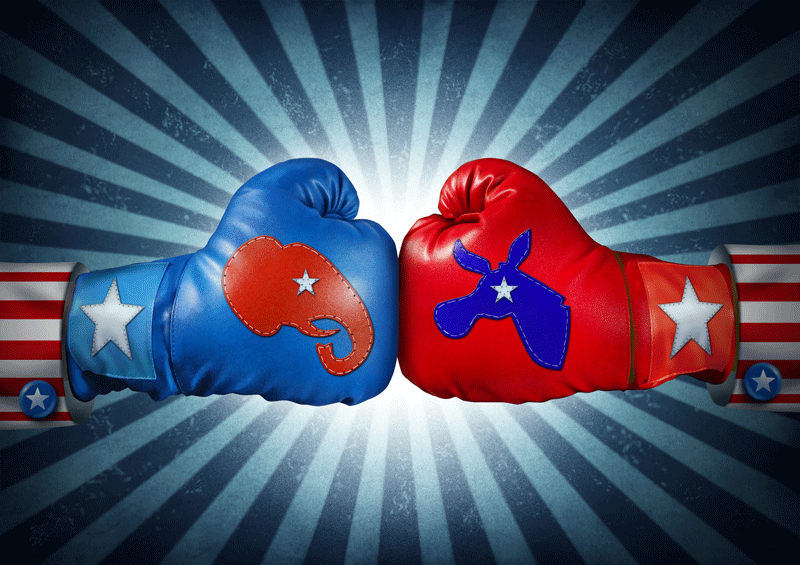
Brexit Finally Happens
Yes, you read that right. Since 2016, btw has been bringing you stories speculating about Brexit–the formal separation of the United Kingdom from the European Union (EU). And now, it has finally happened. But did you miss it?
For more than three years, the world has waited tensely for the terms of the separation to be set. The major points of contention were about what to do with EU citizens living in the UK (and vice versa), as well as how to handle trade and open borders. Former Prime Minister Teresa May tried several times and failed, to pull together an agreement with the support of Parliament. Current Prime Minister Boris Johnson went so far as to illegally dismiss Parliament for several weeks, to try to push through a “deal-free” Brexit without opposition.
So, after all of this, what did Brexit actually wind up looking like? In practice: not much . . . at least, not yet. The EU and the UK will now enter into a transitional period, where everything remains basically the same while a permanent trade deal is worked out between the representatives of both parties. Meanwhile, Nicola Sturgeon, the First Minister of Scotland, says that her country has decided to hold another vote to separate itself from the UK. Other European leaders expressed concern about Brexit but indicated that they would continue to have good relations with the UK going forward.
Dig Deeper Name the remaining countries of the European Union. In what year did Britain join?
Coronavirus: Facts and Myths
Last month, btw took a look at a new disease called coronavirus that was just beginning to spread throughout China and to a handful of other nations as well. Since then, more than 640 people worldwide have died of the disease, with more than 31,000 affected. This includes at least 12 cases in the United States.
Whenever there’s the threat of a disease outbreak, people tend to get a bit panicky. But what’s important to remember is that coronavirus only spreads through respiratory droplets–meaning, someone with coronavirus pretty much has to sneeze on you for you to get it too. So far, the disease has only spread between people who have had close personal contact with one another. So can you catch coronavirus from, say, that package you ordered online from China? The answer is no. Most viruses can’t live for several days on the surface of a cardboard box (or inside of it, for that matter). So go ahead and open up that letter or package: you’ll be fine.
People have also wondered about whether or not they can catch coronavirus from their pets (spoiler alert: no), and whether mouthwash, garlic, or sesame oil will help protect you from infection (also no). Instead, the World Health Organization advocates for much more traditional methods of disease prevention: wash your hands frequently with soap and water (or, in a pinch, hand sanitizer works too). Avoid touching your eyes or mouth. Make sure to cover your mouth and nose with your arm (not your hands) when you cough or sneeze, and keep a physical distance of at least three feet between yourself and anyone else who you notice is exhibiting these symptoms.
Dig Deeper So far, more than 640 people worldwide have died this year of coronavirus. How many have died in 2020 of the flu?
The Iowa App: What Went Wrong?
Several weeks ago, btw took a closer look at the new use of smartphones to the Iowa Democratic caucus. Basically, for the first time ever, Iowans would be able to cast their vote for their favorite candidates from the comfort of their own homes by using an app. In that story, btw asked: but what happens if the app fails?
The goal of using smartphones to vote was to make the process quicker, easier, and more transparent. Instead, twenty-four hours after the caucuses ended, a winner had still not been determined. So what happened? Only a portion of the data from the app was getting reported back to the Iowa Democratic Party (IDP). This meant that Party staff had to enter all of the data manually, which caused a lengthy delay. Another factor was that caucus chairs and volunteers were not adequately trained on how to use the app, which many claim was rather complicated.
Shadow Inc., the company that created the app, has apologized. It insists that all of the data gathered by the app was accurate and that the problem only occurred during the process of transferring that data to the IDP. That means that the data was secure and that there were no cybersecurity threats. The company also claims that it has already addressed and corrected the problem. However, Tom Perez, the Chairman of the Democratic National Committee, says that the app should not be used again in any other primary election.
What Do You Think? Does the situation in Iowa change your opinion on the role that technology should play in elections? Explain.
Showdown at the SOTU
It should come as no surprise that last week’s State of the Union address was controversial. It was delivered by a president who, at that moment, was still in the midst of an impeachment trial for his role in attempting to interfere with the 2020 presidential election. But even by those standards, it was quite a tense night. Trump refused to shake the hand of Democrat Nancy Pelosi, the Speaker of the House, and the leader of the impeachment inquiry. Later, as Trump finished his speech to Republican applause, Speaker Pelosi ripped up her copy of the speech behind him.

Another controversial moment occurred when Trump awarded the Presidential Medal of Freedom to conservative talk show host Rush Limbaugh during the nationally televised speech. Limbaugh conservative radio career has been controversial by many of his critics. To these critics, it’s shocking that Limbaugh received the same award given to heroes such as Mother Teresa and Rosa Parks.
In some ways, political experts say, the State of the Union was like a Trump campaign rally. Republicans chanted “Four more years!” as Trump arrived, and he hit on many of the same points he brings up at his rallies–such as the strong economy, job growth, increased defense spending, and his administration’s crackdown on immigration. He also talked about health care, advocating for legislation that would lower prescription drug prices, while at the same time calling many of his potential Democratic opponents who are in favor of universal health care socialists.
